Climate
-
 Climate
ClimateCOP28 nations agreed to ‘transition’ from fossil fuels. That’s too slow, experts say
COP28 ended with a historic climate agreement to begin moving away from fossil fuels, but stopped short of mandating phasing them out.
-
 Oceans
OceansOcean heat waves often lurk out of sight
About 1 in 3 marine heat waves occur below the surface, a new study reports, suggesting these harmful events are more common than previously thought.
-
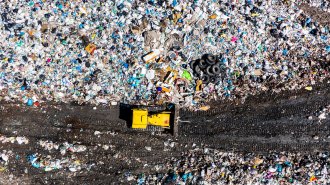 Climate
ClimateCOP28 is making headlines. Here’s why the focus on methane matters
Here’s one takeaway from COP28: Deep cuts to methane are essential to meet the Paris Agreement goals. That’s still possible.
-
 Climate
ClimateHere’s how 2023 became the hottest year on record
The effects of climate change were on clear display in 2023 as records not only broke, but did so by surprising amounts.
By Carolyn Gramling and Nikk Ogasa -
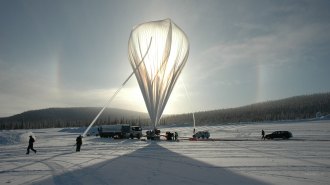 Climate
ClimateA new UN report lays out an ethical framework for climate engineering
The report’s release, which coincides with COP28, weighs the ethics of using technological interventions to mitigate climate change.
-
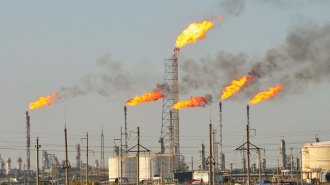 Climate
ClimateCapturing methane from the air would slow global warming. Can it be done?
Removing methane from the atmosphere requires different technology from removing carbon dioxide. Scientists are taking on the challenge.
-
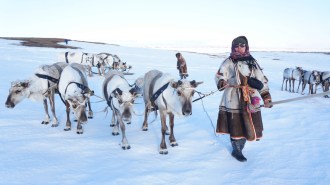 Science & Society
Science & SocietyReindeer herders and scientists collaborate to understand Arctic warming
Siberian reindeer herders and scientists are working together to figure out how to predict rain-on-snow events that turn tundra into deadly ice.
By Sujata Gupta -
 Climate
ClimateThe last 12 months were the hottest on record
The planet’s average temperature was about 1.3 degrees Celsius higher than the 1850–1900 average, a new report finds.
-
 Plants
PlantsOn some Australian islands, sea level rise may be helping mangroves thrive
Rising seas usually spell trouble for mangroves. But the first survey of the Howick Islands in 50 years finds that mangroves there have expanded a lot.
-
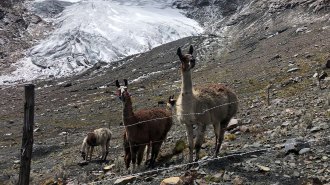 Animals
AnimalsAt the foot of a melting glacier in Peru, llamas helped revitalize the land
A partnership between scientists and farmers suggests how llama herding can mitigate some of the impacts of climate change.
-
 Life
LifeSee the wonders of two newfound deep-sea coral reefs off the Galápagos
Coral reefs around the world are in trouble. But these reefs in the Galápagos Island Marine Reserve have yet to be damaged by humans.
-
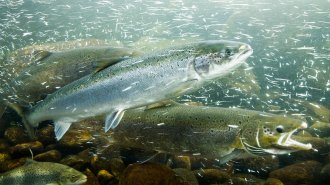 Animals
AnimalsPumping cold water into rivers could act as ‘air conditioning’ for fish
Hundreds of salmon, trout and other fish sought shelter from summer heat in human-made shelters, suggesting a way to help fish adapt to river warming.
By Nikk Ogasa